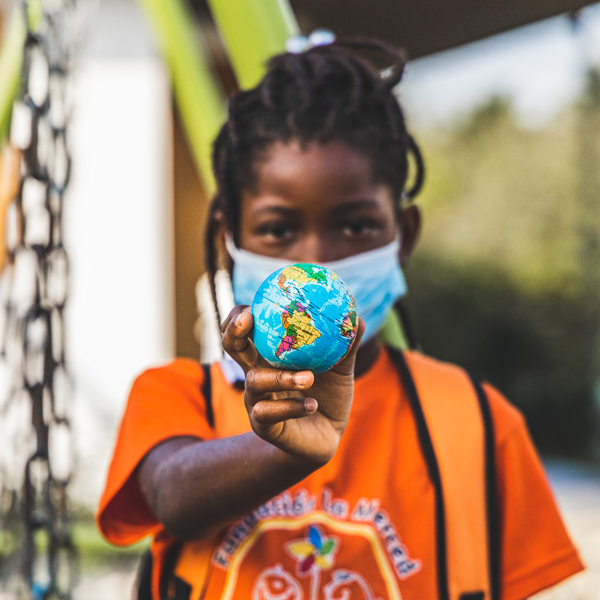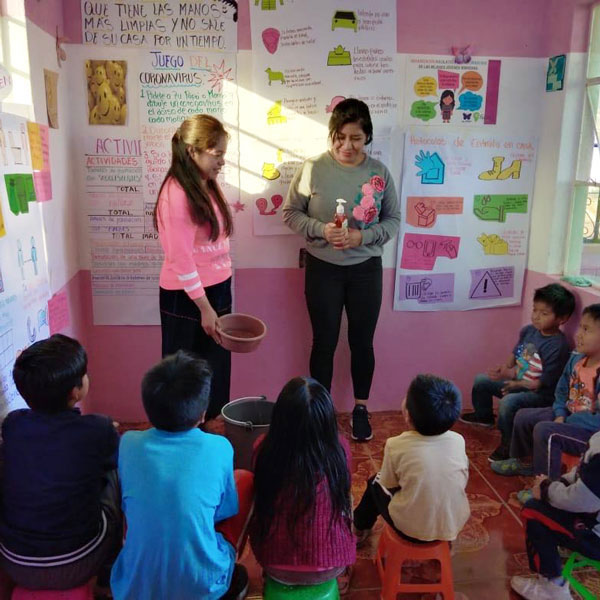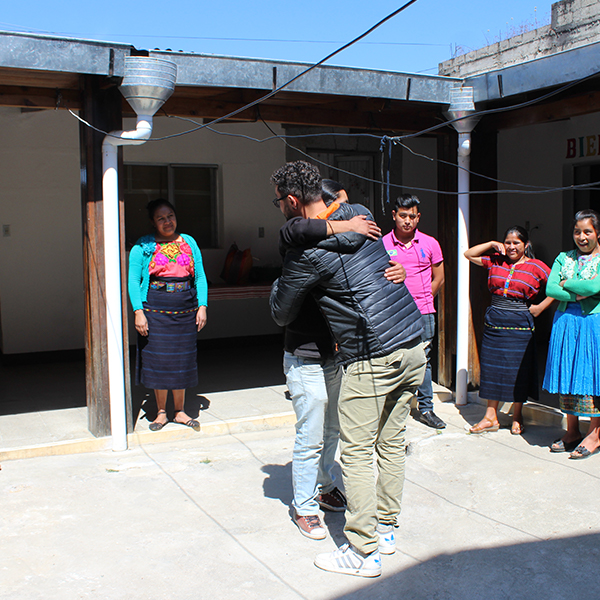Editor’s note: This post is also available in Spanish.
We’re excited to share the results of our second Grantee Perception Report, our reflections on the changes GFC has made in recent years, and some ideas to further strengthen our relationships with local partners.
By John Hecklinger, CEO, and Corey Oser, Vice President of Programs
When the message we had been waiting for arrived recently from the Center for Effective Philanthropy (CEP) saying that our Grantee Perception Report (GPR) results were in, we felt like students who could not wait to tear open a report card – excited and nervous at the same time. Would our work be recognized? We buried ourselves in analyzing charts and reading every word of the narrative responses. When we came up for air, we felt like ringing a giant gong. Our partners had noticed our shifts, and their feedback was tremendously positive.
When we launched our first GPR with CEP in 2018, we gratefully dove into the first set of comprehensive, anonymous feedback from our partners. We were newly arrived leaders at Global Fund for Children, keen to understand how our local partners felt about their experiences with us. Their perspectives drove a variety of organizational shifts designed to strengthen and deepen our relationships with our partners. Our partners’ perceptions reinforced and amplified the need for change, and we set about rallying the team around a refreshed approach.
Three years later, in late 2021, we asked our partners again to tell us how we were doing. While the global pandemic shifted certain ways of working, we had made other transformations and were eager to hear if and how these changes resonated with our partners. We had already conducted a series of Constituent Voice surveys, with very promising results, and we hoped the GPR would validate what we saw as significant progress.
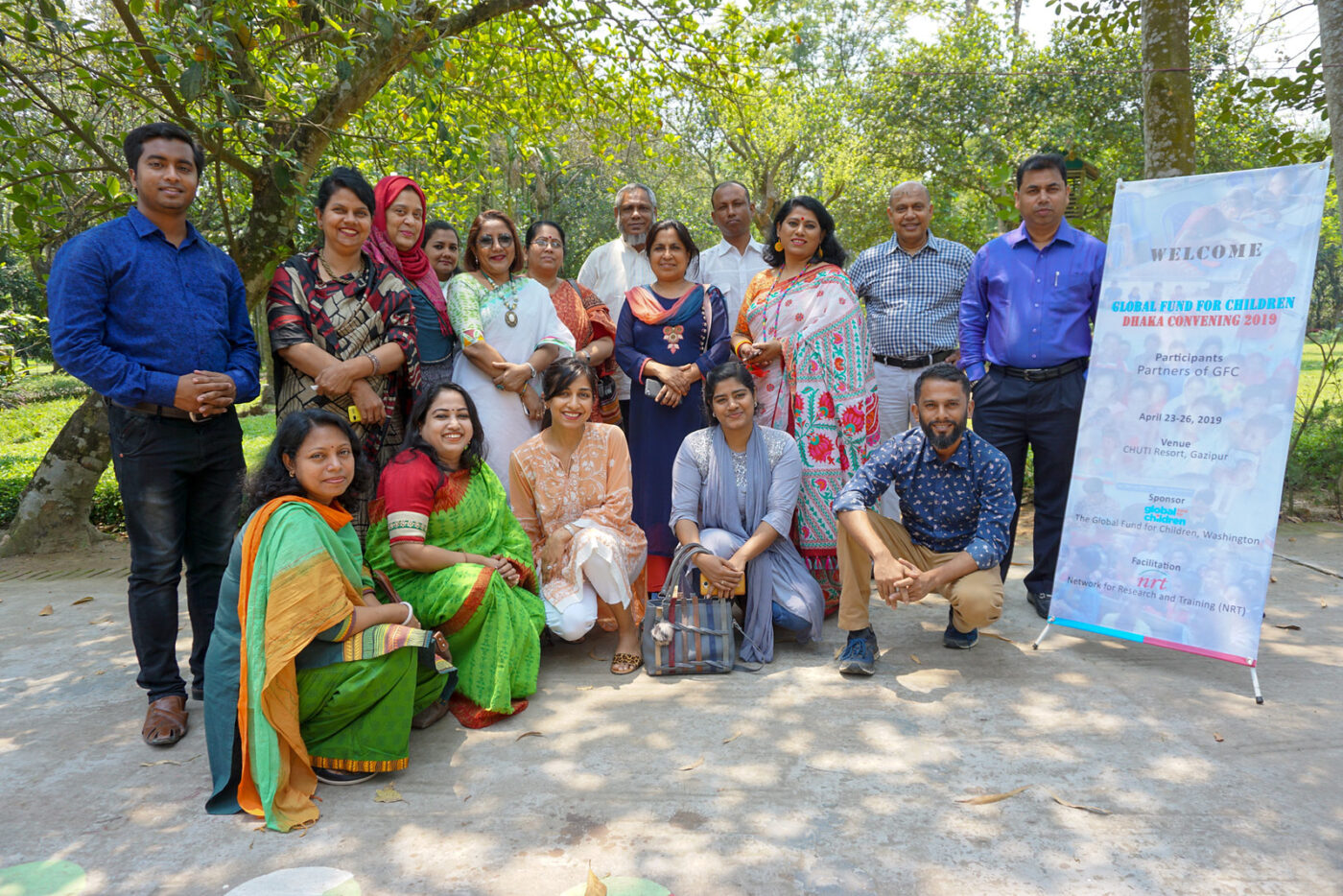
We especially appreciate CEP’s ability to benchmark our findings against a cohort of 12 peers as well as a broader dataset of 300 funders. When selecting our peer cohort, we considered groups that we admire, that work globally, and that foster strong relationships with their partners. We expected this to be a robust comparison group, and we hoped to score well on many measures.
We are grateful and relieved that our partners recognize and appreciate the changes we have made, as captured in this comment from CEP:
“Notably, GFC is near the top of CEP’s comparative dataset of more than 300 funders for the quality of its relationships with grantees. It also receives very strong ratings for its impact on grantees’ fields, communities, and organizations.”
CEP also provided validation of our progress: “Compared to GFC’s last GPR, significant changes in ratings are always in the positive direction and in several places are of an unusual magnitude.”
We are eager to share some of the findings, our reflections, and ideas about how we might stretch even further. We hope you will also take time to read the full report and memo from CEP.
Relating and responding
One of the findings from the 2018 survey that made a deep impression on us was that our staffing changes affected the frequency and depth of our interactions with partners. As a funder that provides flexible, long-term grants and helps organizations develop various dimensions of capacity, it is very important that we establish trust-filled relationships, so our partners feel free to share challenges we can tackle together. We realize that our efforts over the last few years to create an environment where our team members feel valued, grow, and contribute in creative ways play an important role in the improvement of our partner relationships. In the last three years, we have more fully embraced the idea that connecting with care and meaning is not a side task but is at the heart of our work to affect power dynamics in our field and set a positive example. We also invested in a more robust documentation of our partner relationships through GivingData, a grant management system where we track significant interactions with partners and our reflections.
“About the communications we have with GFC: it is for us very comforting to find so much opening and availability from GFC and contact persons. The reality of the region is complex, and in GFC we have found empathy and flexibility. They have supported us to implement resilience strategies and continue working in a deeply adverse context.”
As we have embarked on new funding initiatives, we have ensured that the number of partners that each relationship manager interacts with is small enough to allow for meaningful connections. We have also increased the frequency of our interactions, while being conscious of our partners’ time and priorities. For instance, when the pandemic hit, we reached out to our partners to see how they were doing and how we could support them, organized regional calls, and pivoted activities online in unique ways.
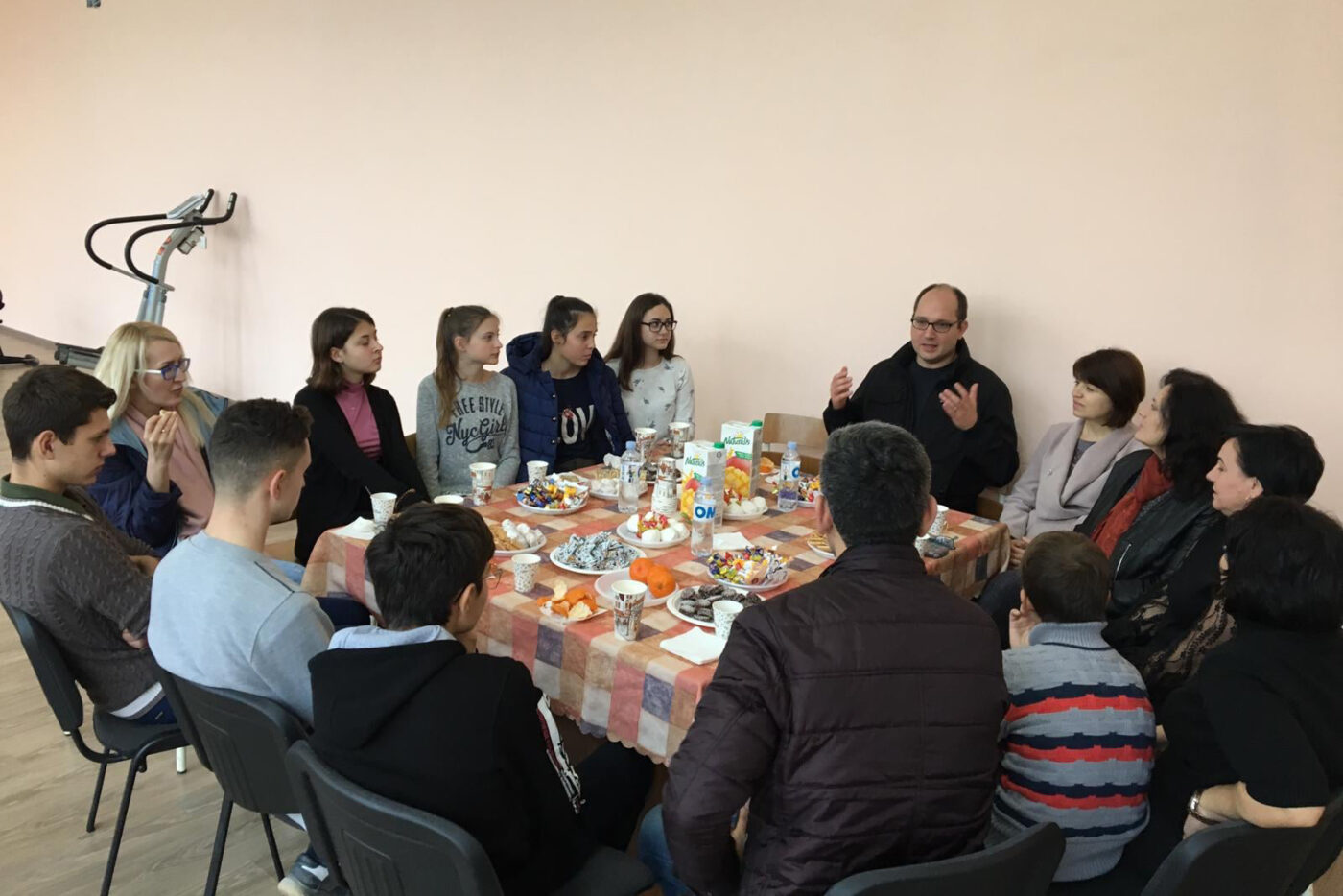
“I can say GFC’s processes, interactions and comms were the most supportive I experienced during Covid. They didn’t hire external facilitators for online gatherings, which I believe enabled more human & frank interactions and exchanges to take place and subsequently a greater sense of kinship among the group than I had experienced in any of the (many) other professional online gatherings I attended (and still attend) during Covid.”
Responding to partners in a timely and empathetic way, and with a willingness to discuss difficult issues, is another place where we noticed shifts in perceptions. CEP writes, “Grantees provide particularly positive ratings – in the top 3 percent of the dataset – for their comfort approaching GFC and the responsiveness of its staff, representing a dramatically higher rating than in 2018, when the Fund was rated in the bottom quartile for each of these measures.” We also saw marked increases in the quantitative measures around the consistency of communication and the frequency of contact with program staff. One partner refers to a “sensitive, professional, empathetic and open team, which is committed to each of the organizations,” while another mentions that “GFC considers organisations they fund as partners always, and we feel they are very much part of the organisation’s team. They are open, friendly and readily available always, even over a call. They are always ready to listen to us and give constructive feedback.”
As we have gradually shifted to largely working with partners as part of peer learning groups, or cohorts, a regular cadence of activity has emerged that helps shape our partner interactions. As we have improved our staff retention, we have been able to build longer-term relationships between staff and partners, which facilitates open and honest dialogue.
The principles shared by the Trust-Based Philanthropy Project have also served as useful touchstones for our team to frame our relationship practices and to spark critical questions when needed. Inspired by currents for change in the wider field, we also continue to advocate with our own funders about the importance of multi-year funding, which allows deeper relationships with partners to unfold and less scrambling to retain valued team members who join us through time-limited funding opportunities. We have also embraced communication platforms used by partners, such as WhatsApp, which inspire more frequent, informal communication.
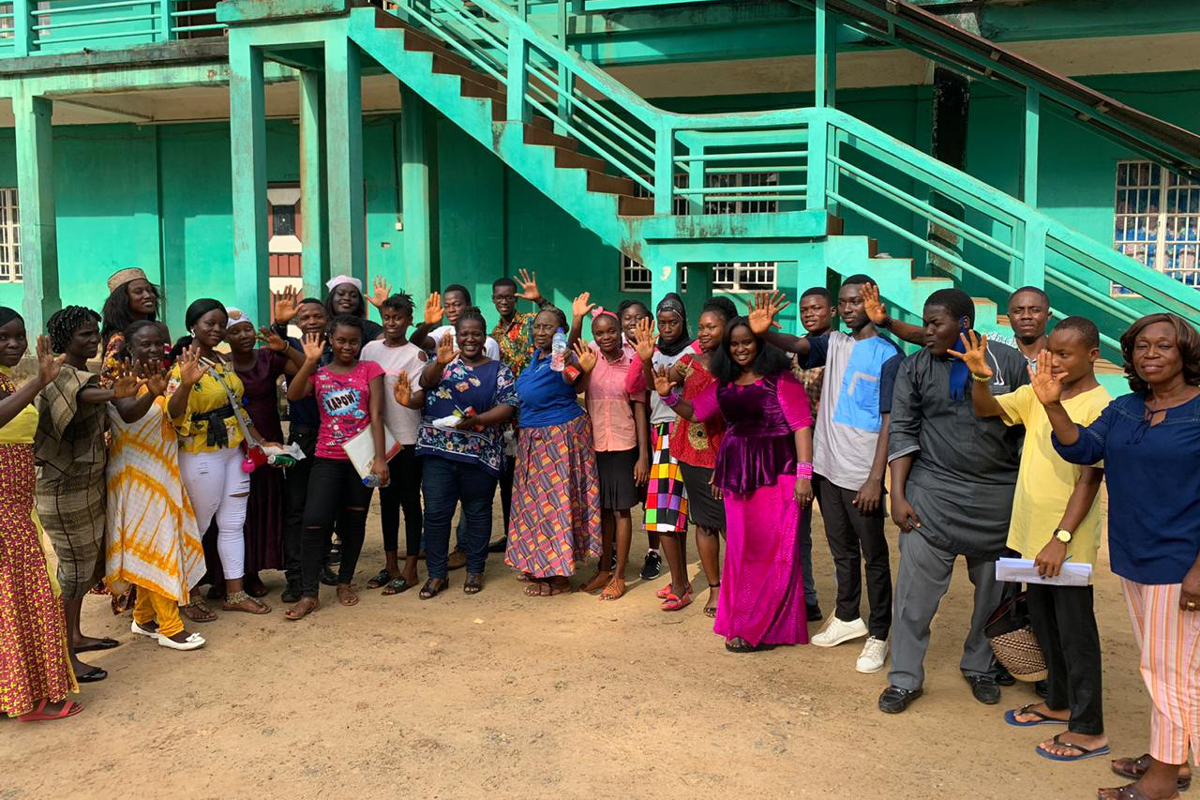
Our commitment to support partners with COVID relief in a timely way also may have contributed to the perception of responsiveness; as one partner writes, “GFC and its team . . . has been very proactive and reaches out to partners on [the] ground and gets feedback on the needs.”
Partners told us that we have gotten better at understanding their fields and communities. CEP notes: “GFC is now rated in the top one percent of funders for its awareness of challenges facing grantee organizations, a rating significantly higher than in 2018.” We recognized that in order to break down barriers between us and our partners and build a deep, empathetic understanding of their contexts, we needed to be physically closer. For the last three years, we have hired team members mostly in countries where partners are located. Many of our team members are active in the same spaces and networks as partners, which places us at the heart of collective change processes. We have invested in our hiring and onboarding processes to emphasize trust-based values and practices, and we create space for learning and exchange across teams, which enriches our interactions with partners.
Strengthening beyond the check
GFC occupies a unique space among peer cohort members. CEP notes: “GFC grantee organizations report smaller budgets than is typical in CEP’s dataset or the Fund’s cohort. As a result, GFC’s smaller than typical grants go toward funding a larger proportion of grantee budgets than the typical funder.” We often support organizations that have not worked with institutional funders, as well as those that rarely, if ever, receive flexible, core support. Organizations at an early stage in their journey often welcome more engagement and interaction with our team. We noted an increase in the percentage of partners that reported receiving nonmonetary support, and the percentage of partners describing this support as a “major benefit” to their organizations rose sharply.
“Within our organization, GFC has opened opportunities for staff members to learn, collaborate and participate with [other] organizations/leaders in the field. These were not previously available to us.”
“The learning workshops have been a constant reminder and accompaniment for the organization. Likewise, [GFC has] always worked with a collective care approach, respecting the times and needs of each organization, which does not happen with other international foundations.”
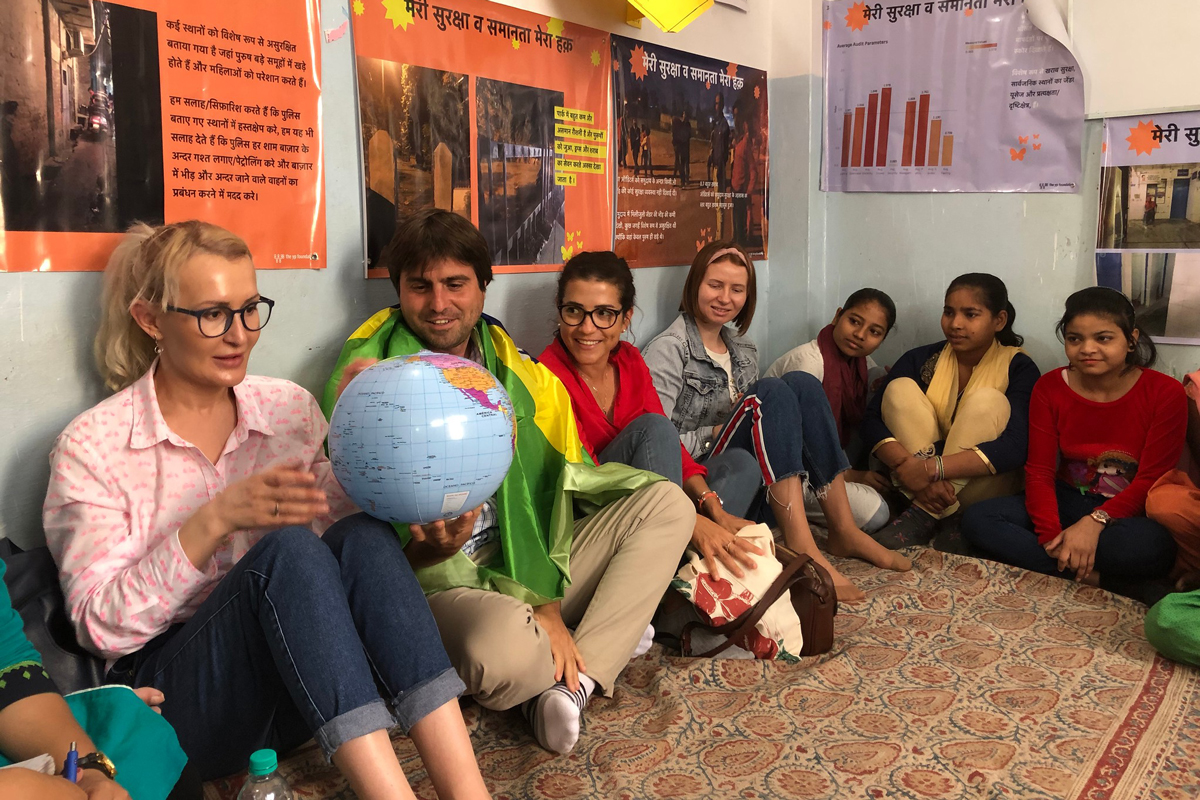
Over the last few years, we have made a strong effort to ensure that our nonfinancial support to partners emerges from their needs and interests and is appropriate to the skills and experience of our team. We engage with partners beyond traditional organizational development areas, which are often aimed at helping organizations become better grantees; instead, we emphasize areas that align more closely with the organization’s own aspirations, including community ownership approaches, gender and masculinities, wellbeing, and promoting a safeguarding culture. We also tap into our network for local resources to support partners in additional areas they identify. We have invested considerable energy in strengthening our facilitation practices so that we may host dynamic and inclusive learning spaces where we bring our partners together.
“They have been a major influence in shaping our interventions toward building community ownership and at the same time building youth capacity, and they have supported us in these processes too. They have instilled in us the value of partnership and trust. We have learned from them through their practices.”
“The access to other organisations has been invaluable, creating space for thinking outside of my own that has benefitted us enormously.”
“We have seen genuine concern and engagement to help us grow as an organisation in our capacity and blossom beyond our expectations. The [cohort] helped bring like-minded organisations together to work together in synergy, and now the [cross-border cohort] is helping us in several other aspects of our work.”
Our evolving journey
In our first survey, our partners told us that they hoped for larger grants and longer-term funding. We continue to put energy toward building our donor base and advocating for long-term, flexible funding, and we acknowledge there is much more to do. In our vision for the next five years, we aim to build a fund to expand resources for partners and ignite some of the unique connections and opportunities that might not fall within the priorities of our institutional donors. We also aim to continue to raise resources and move them quickly to partners during times of crisis, when traditional sources often do not reach community-based organizations fast enough.
We dedicate part of our new vision to influencing the donor ecosystem to make the funding environment more conducive for community-based organizations to build relationships with their communities and drive systemic change. Sixty-one percent of our partners told us that they would like to see us help encourage other donors to support flexible, long-term funding. We are especially inspired when our partners exercise their own influencing muscles: “GFC’s approach to grant-funding has allowed us to share with other foundations what they are doing in the hopes of advocating for unrestricted financial support as well as capacity building/strengthening for organizations beyond the financial component.”
While some of our partners mentioned that our reporting process is straightforward, we also heard the message that we have more to do to simplify it and reduce the amount of time some of our partners dedicate to reporting. CEP notes, “Given the relatively small median grant size, grantees receive a lower monetary return for every hour they spend on GFC’s processes when compared to the typical funder in the dataset.”
A value GFC brings to its relationships with organizations is the ability to manage complex funding dynamics: while the funding from our institutional donors supports specific themes and purposes, our funding to our partners is flexible. We navigate a delicate balance between collecting metrics required to unlock funding from less flexible funders without overburdening partners and creating space for appreciation of less quantifiable, but likely more important and valuable, learning and development. Striking this balance will continue to be an area of focus for us in coming years.
“Our main recommendation for GFC would be that they reevaluate their reporting requirements. For a general operating grant, we find GFC’s reporting requirements to be lengthy and burdensome. We do not feel the level of reporting required corresponds with the size of the grant and the unrestricted nature of the support.”
We are committed to experimenting with different formats and processes for gathering information, including audiovisual formats, and not assuming that written reports are the best way to convey information. We will also seek ideas from our partners about how we can continue to simplify the process and make it more meaningful and better aligned with the level of support they receive.
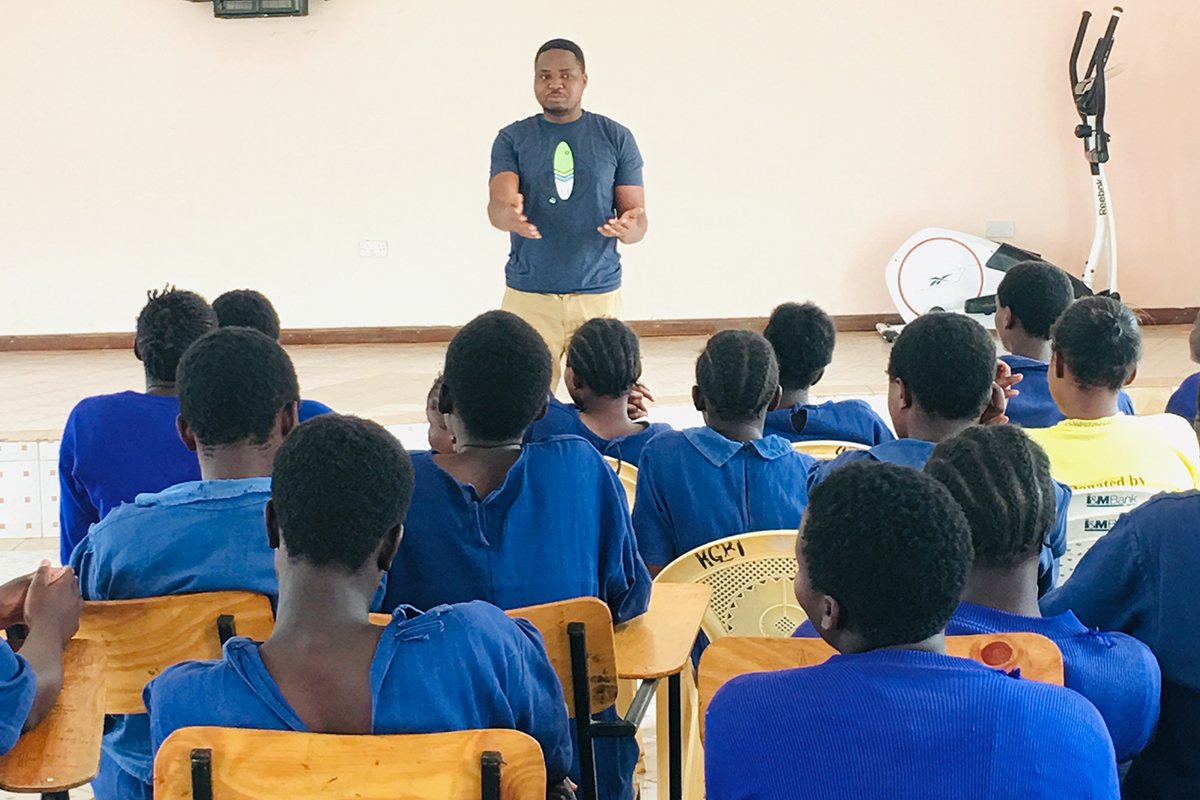
“Report processes have been improving (they are no longer so many) but they continue to consume a lot of time for the different ways of carrying statistics. The information requested in the reports does not always reflect the most relevant of work.”
We heard from our partners across the survey that they appreciate the opportunities to connect with and learn from each other. We have done our best to create these opportunities and will continue to evolve and experiment with our practices, often co-creating with partners. One partner suggested that we “integrate a document on the ‘good practices’ that have been carried out by organizations, to be able to socialize them among partner organizations.” This year, we plan to launch Co-Lab, an online platform that will be a space to share resources and information among partners. We have also recently launched a Partner Advisory Group that brings partners together for sharing with each other and for influencing our practices.
In our new vision, we aim to collaborate with our partners to see where we can make more of a difference in creating positive change in the philanthropic sector, especially elevating the role of community-based organizations.
“We would recommend continuing to use GFC’s platform and networks to advocate for greater investment in community-based organizations working to respond to the impact of the pandemic and fighting for social justice and greater equity for disadvantaged groups.”
We are grateful to our partners for their trust in us and their thoughtful reflections on how we are doing and how we can grow. We will continue to ask, listen, and act in order to be an even more effective platform for community-led change and equitable relationships.
Header photo: GFC partners met with other civil society organizations for a convening in Tijuana, Mexico, in 2020. © Jeff Valenzuela
